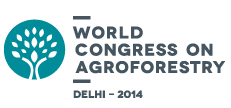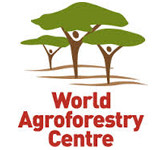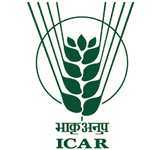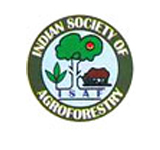
Vigyan Bhavan & Kempinski Ambience
10 - 14 February 2014
Delhi, India
blog

It’s November 2013 and I’m chasing Ismaël’s youngest son around the cabbages trying to get my sunglasses back. Behind me Ismaël and my colleague Badrou are showing representatives from the Anjouan governor’s office around the demonstration plot, and Ismaël is explaining the agroforestry techniques he has used and what income he’s generated. When the tour is finished Ismaël insists on giving us some of his splendid aubergine crop to take home, and I finally manage to prise my glasses back from his disappointed son. There are smiles all around; Housni from the governor’s office is impressed by what he’s seen, and Ismaël is proud to be showing off the fruits of his hard labour. But Ismaël didn’t always feel so positive about his future.
In early 2012 he didn’t know how he would manage to feed his kids and send them to school: the fields he inherited were infertile and unworkable, and there are few jobs on Anjouan, one of three islands which make up the Union of the Comoros. Anjouan is facing environmental collapse: according to UN figures, between 2000 and 2010 it had the highest deforestation rate in the world, and around 30 of its 45 permanent rivers have become intermittent.
Like many other Anjouanese, Ismaël thought the neighbouring French-controlled island of Mayotte presented the best opportunity to find a job and make enough money to support his family. Six times, Ismaël paid a hefty fee to a boat captain and made the perilous, illegal journey by night to Mayotte, crammed with 30 to 40 others in a small boat, hoping to get past the radar and the French police. Three times he was caught at sea, three times he was caught later in Mayotte, and each time sent back to Anjouan. Other would-be illegal migrants were not so lucky: thousands have died trying to make the crossing. Boat sinkings are a monthly tragedy, but the situation is so grave on Anjouan that people keep trying to make the crossing. After his sixth failed attempt to establish himself on Mayotte, Ismaël had used up all his savings, and returned to his village, disillusioned and despairing.
Older people in Ismaël’s village, Adda, would talk about the time when they all made a good living from their fields and the source provided water for the whole region. But now the forest was gone, the land no longer produced, and everyone had to queue for hours to get a jerry can of water. Ismaël couldn’t see how he’d be able to grow anything on his dusty field by the village football pitch. But a friend told him about our NGO Dahari, how we were teaching people to make their fields fertile again. Ismaël sought out Badrou, one of our agricultural technicians who came regularly to Adda, to ask about this new scheme.
Badrou took him to see other areas of Anjouan. They went first to Koni-Djodjo, where there is barely a tree in sight, the soil falls through your fingers like sand, and the villagers can barely make a living from the land. Then Badrou took Ismaël to meet farmers from the Moya region who had previously worked with Dahari. Their fields were surrounded by trees and they showed Ismaël substantial crops of bananas and plentiful tubercules of manioc. Ismaël thought Dahari’s methods must be worth trying.
During 2012 Badrou visited Ismaël at least once a week in his field to advise him. First, Ismaël planted tree-cuttings of Glyricidia and Sandragon around the edge of his field and also along the contour lines. These are leguminous tree species that fix nitrogen, fertilising the soil; they are also very fast-growing and within a few months had formed a barrier against erosion so that the fertile topsoil was no longer washed away by the rain. He used manure from his livestock to fertilise his field so that he could plant market-garden crops like lettuce and tomatoes. He also planted feed for his cow and constructed a stable to improve its health and productivity. And he started growing bananas and cassava mixed in with leguminous permanent-cover plants to keep fertility in his field all year round. By the end of 2012 he was making more money than he’d ever made before, enough to feed his family properly and send his children to school.
Ismaël’s story is a striking example of what can be achieved by investing in sustainable agriculture, and his desire to convince others of this has made this story a powerful communication tool. In the last year Ismaël has received a stream of visitors to his field: government representatives, journalists, partner institutions… He has featured on the BBC’s From Our Own Correspondent (episode from 31 October) and spoken at the launch of a film about his story in the Anjouan capital, Mutsamudu. The film was played on loop on Anjouan TV, went viral in our intervention villages, has over 5000 views on YouTube, and won second prize at the inaugural Comoros International Film Festival.
On the journey back to Mutsamudu the governor’s representative says he’s convinced by what he’s seen: Dahari’s work on agroforestry and agricultural productivity is addressing fundamental problems facing Anjouan. He wants us to expand our intervention zone and promises to provide matching government funding so we can attract international funders. We’re delighted that, after so much effort, our work is attracting wider recognition and support in the Comoros. We’ve shown that agroforestry mixed with productive agriculture is the future for Anjouan – to date we’ve helped over 2200 farmers increase their yields in a sustainable manner. Now the challenge is to expand the scale and impact. To that end we are recruiting a team of village outreach officers, who will be supported by our expert technicians. Ismaël is the first name on the list, and he can’t wait to show as many people as possible the benefits of investing in agroforestry, and how it can transform the future of Anjouan.
Photo: Ismaël in his field
Blogpost by Hugh Doulton (Technical Director, NGO Dahari, Anjouan, Comoros) – hugh.doulton(at)daharicomores.org
Photo credit: Dahari
|
This post is entry nr #33 in our #WCA2014 blog competition. The five blogposts with the most and highest votes will receive a signed copy of the book "Trees for Life". The most popular blogpost will get an iPad.
This blogpost received 25 votes, with an average score of 5 (out of a max of 5).
Follow our #WCA2014 social reporting teamfollow our social reporting team via the #WCA2014 tag on Twitter, our blog and our Facebook page.
|






3 People have left comments on this post
Great job !
teaching locals to get self sufficiency, wil open the door of hope for many guys…
The guy has a power in himself
Well done Hugh, empowerment of local people through teaching will give them new direction of life!!